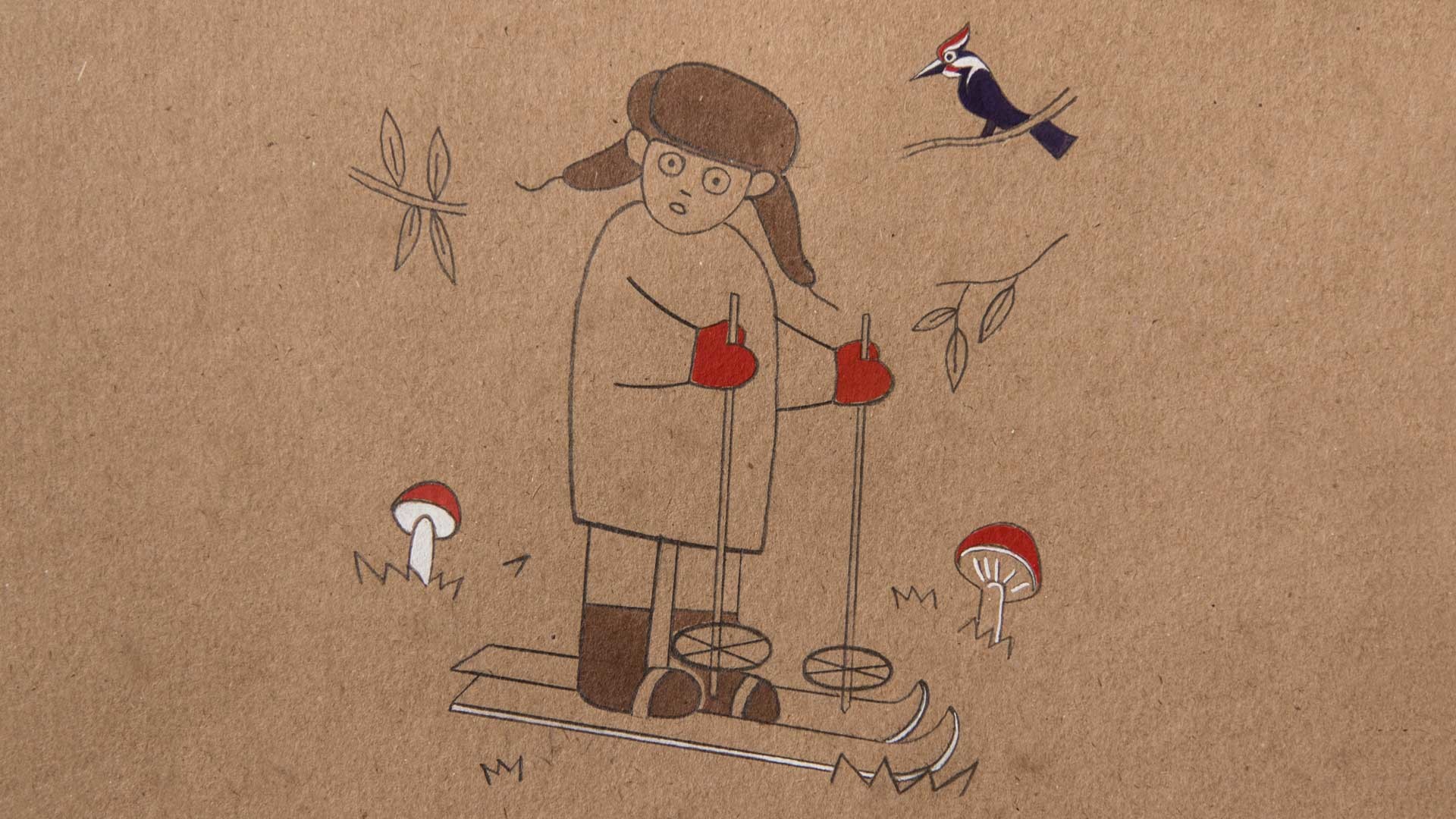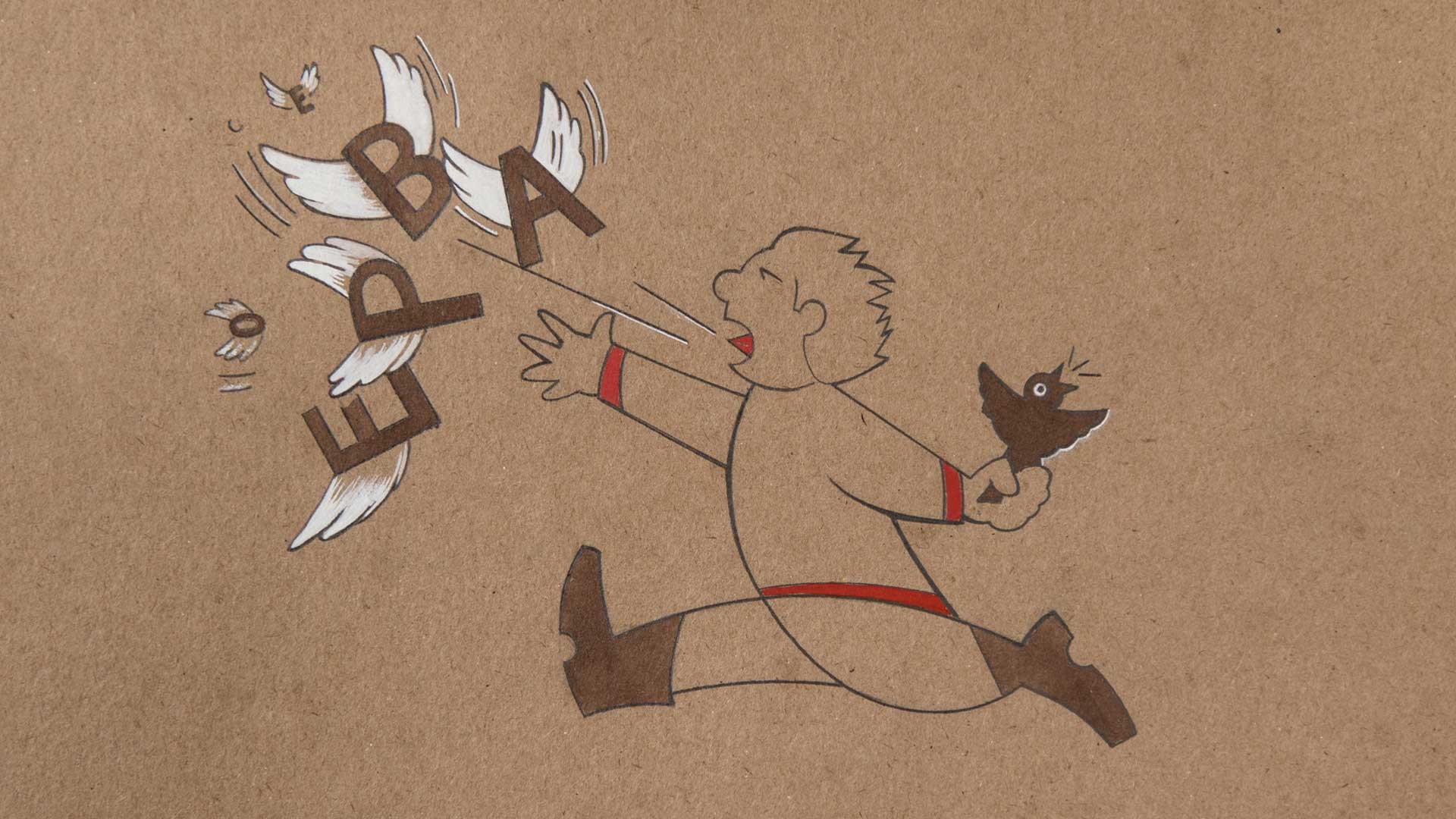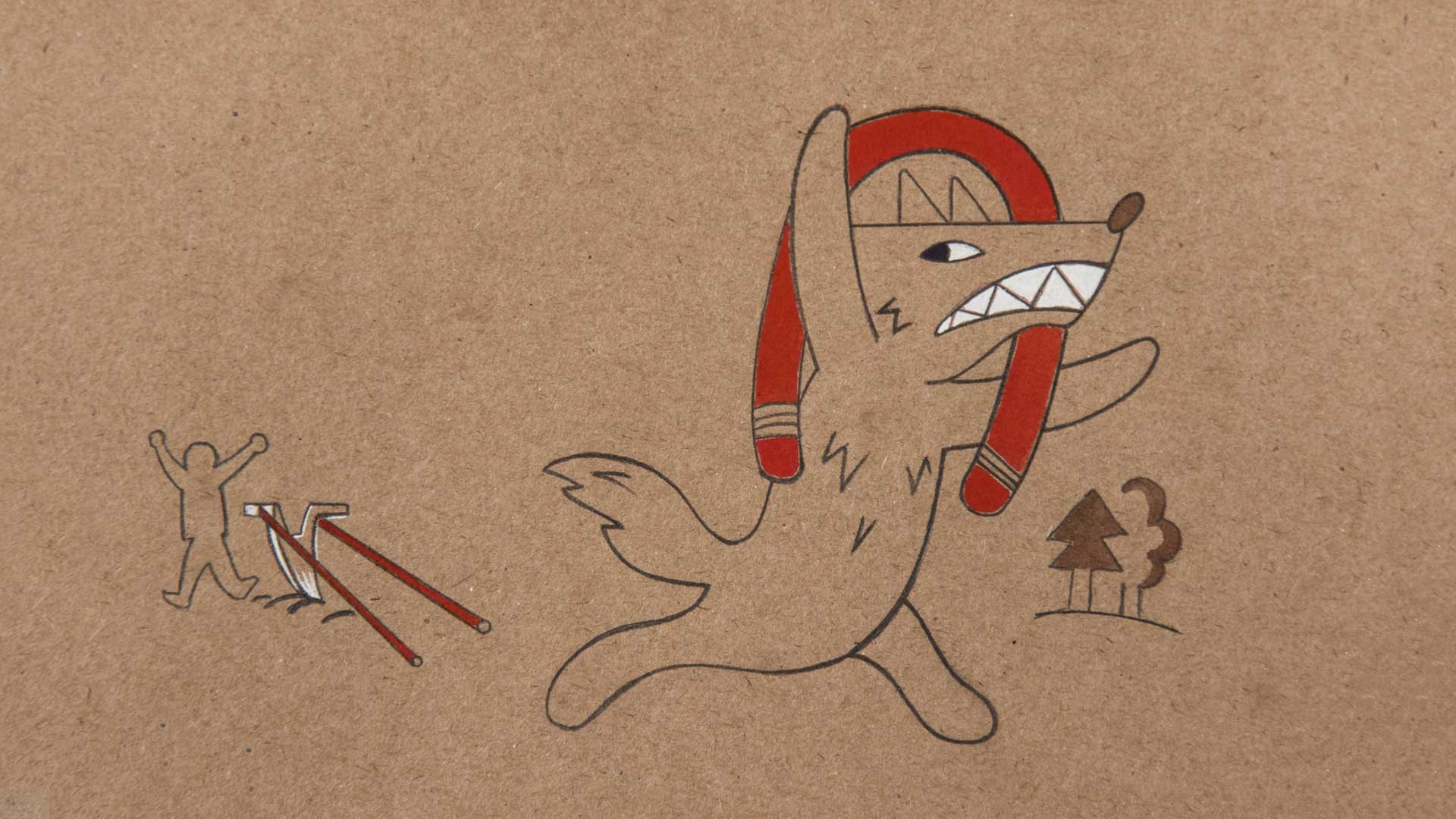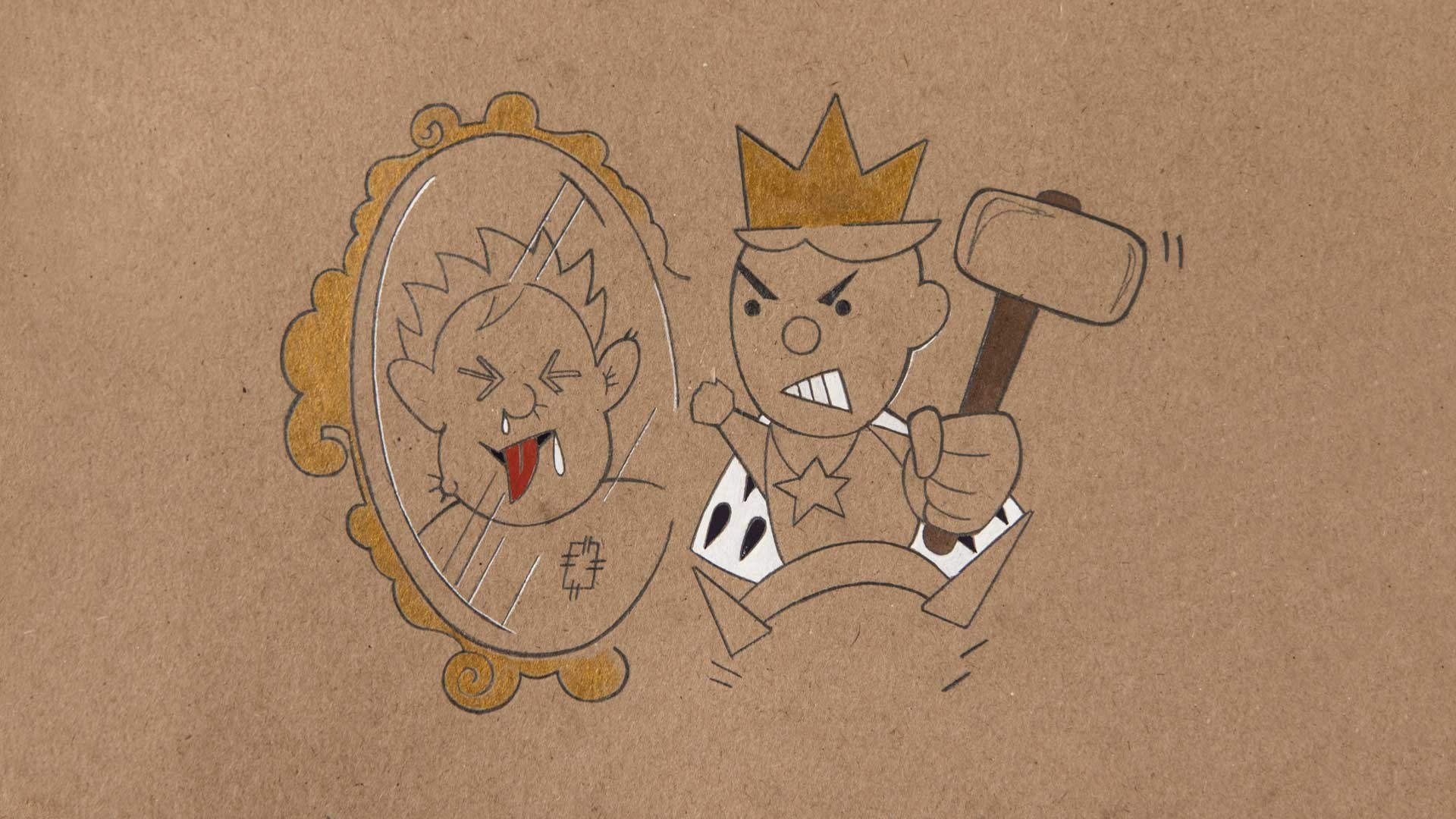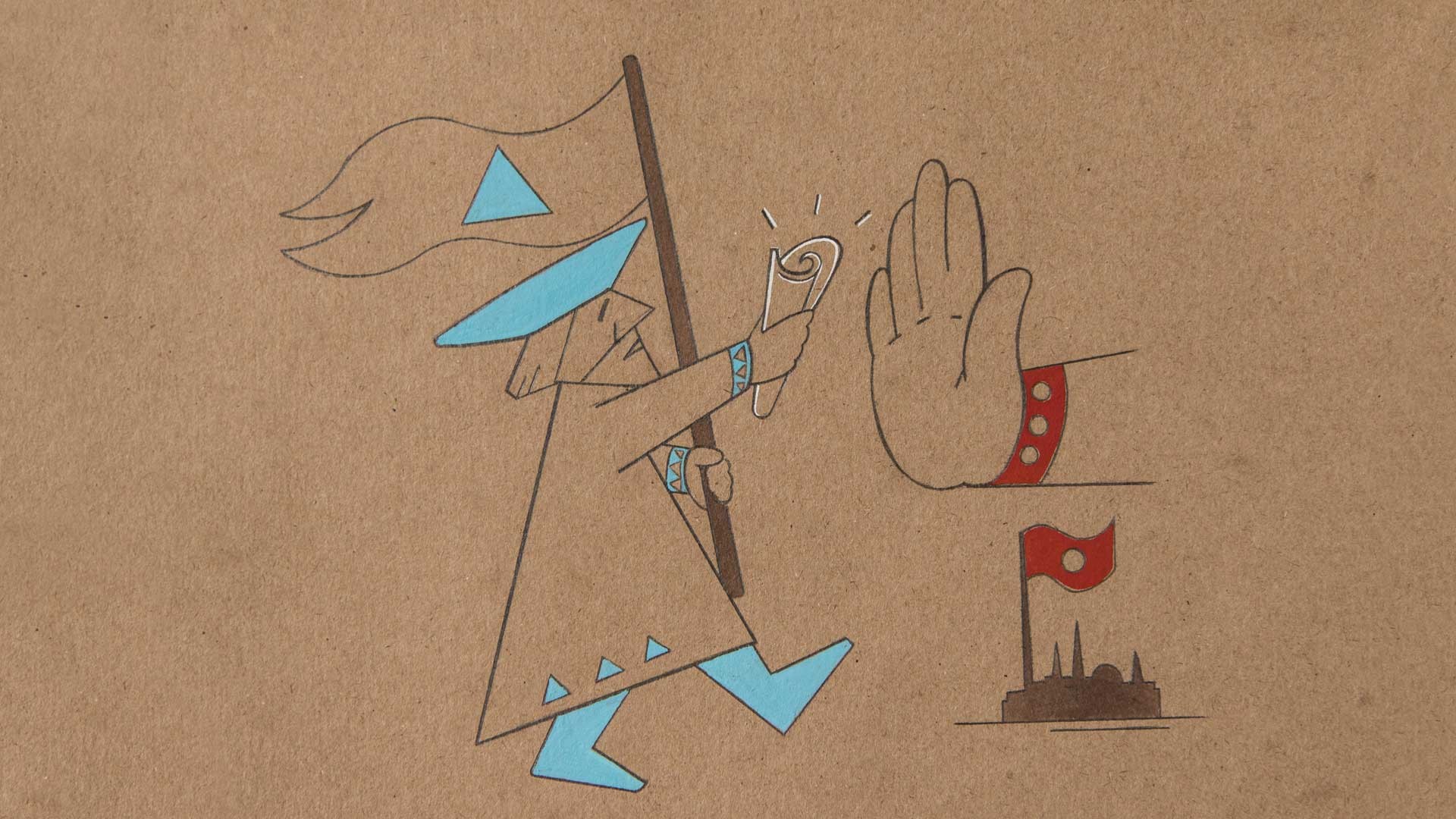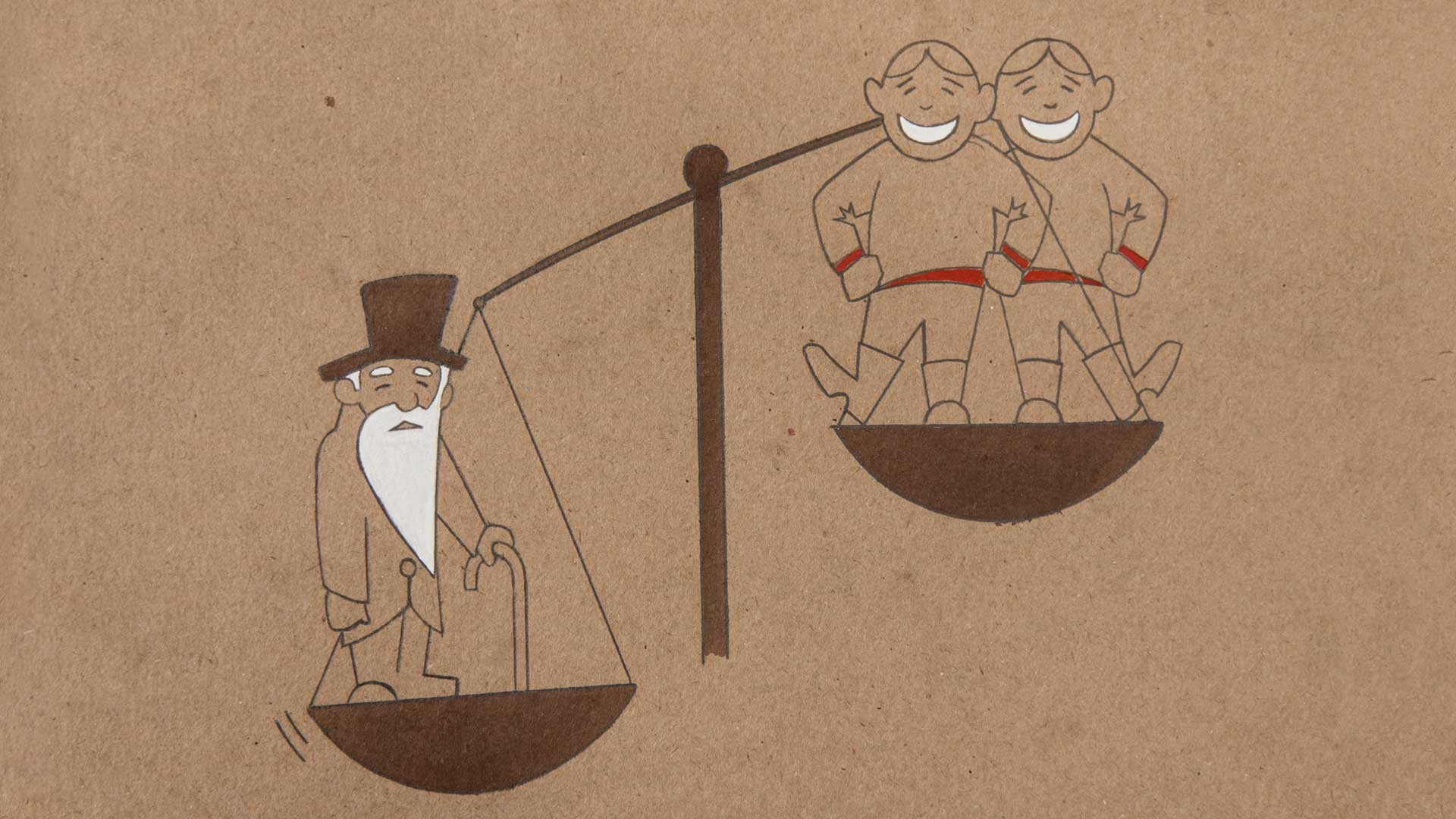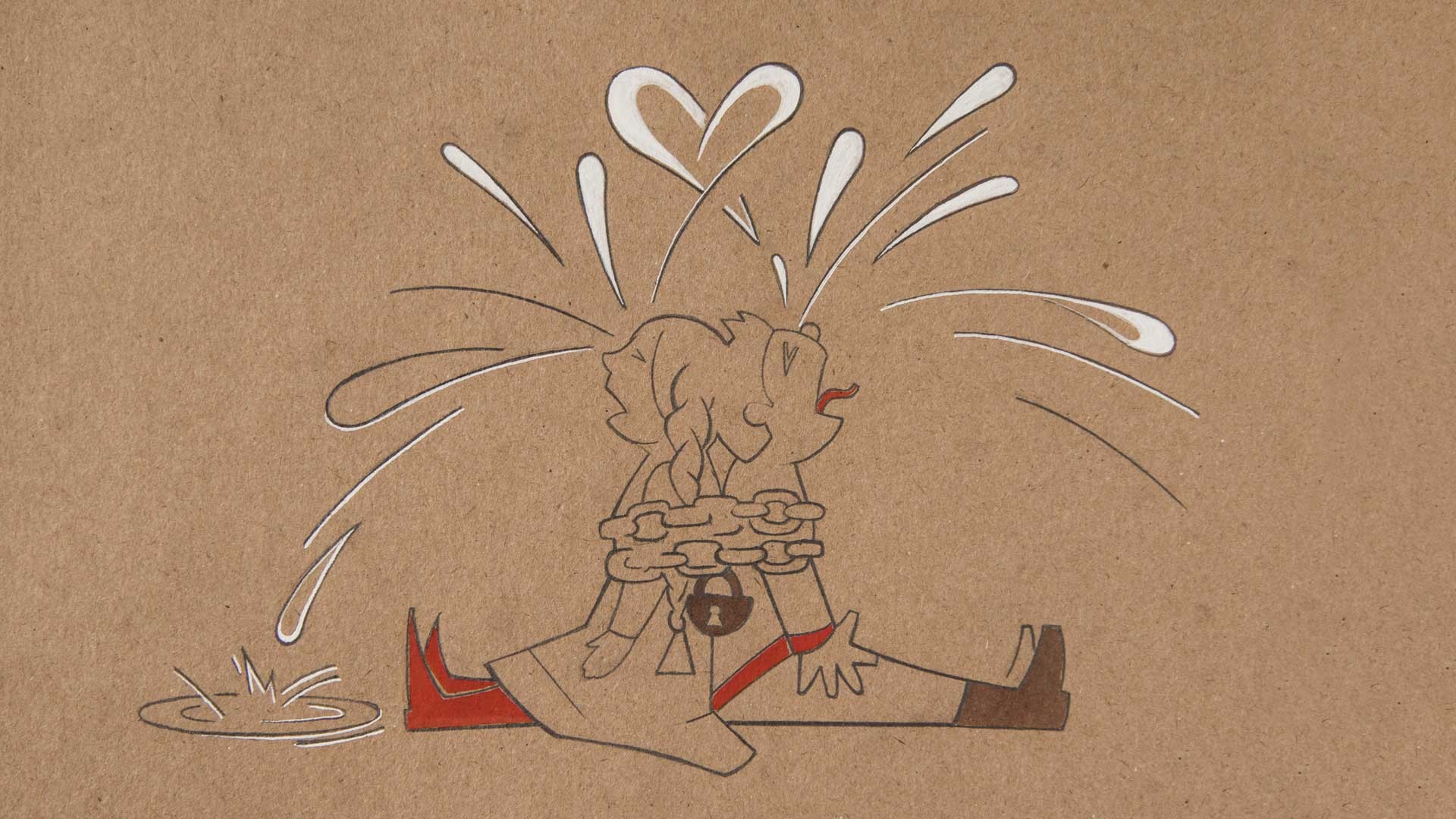1. When you rush, you make people laugh
Поспешишь — людей насмешишь (Pospeshish – lyudei nasmeshish)
English equivalents: «Hasty climbers have sudden falls,» or «Only fools rush in.»
Russians love traveling at high speeds, but they don’t like to be in a hurry. And for sure they don’t like to be mocked, despite the fact they frequently laugh at themselves.
2. Measure seven times, cut once
Семь раз отмерь, один раз отрежь (Syem raz otmer’, odin raz otrezh)
English equivalents: «Second thoughts are best,» or «Look before you leap.»
This proverb recommends carefully preparing before doing something, because you have only one chance. Despite this idiom’s obvious logic, there are possible negative consequences – when you grow up and hear it constantly then there’s an increased chance of developing an indecisive spirit.
3. A spoken word is not a sparrow. Once it flies out, you can’t catch it
Слово — не воробей, вылетит — не поймаешь (Slovo – ne vorobey, vyletit – ne poimayesh)
English equivalent: “A word spoken is past recalling,” or “What is said can’t be unsaid.”
Russians usually shorten this idiom to: «A word is not a sparrow.»
This idiom was especially relevant in Stalinist times when a wrong word at the wrong time and place could have fatal consequences — for example, if the neighbors heard you telling a joke about Stalin, then you could be arrested. Not surprisingly, most Russians who lived during that era learned to be quiet.
4. Work is not a wolf – it won’t run away to the forest
Работа – не волк, в лес не убежит. (Rabota – ne volk, v les ne ubezhit)
English equivalent: “All work and no play makes Jack a dull boy.”
This proverb reflects the ancient Russian folk image of a man lying about and enjoying his favorite pastime — doing nothing. This idiom was immortalized in the Soviet movie, Operation Y and Shurik’s Other Adventures, where a man sentenced to construction work for a minor offense is too lazy to do any work, and says the legendary phrase, “work is not a wolf.” Take it easy – you can return to your work any time.
5. Don’t blame a mirror for your ugly face
Нечего нa зеркало пенять, коль рожа крива (Nechego na zerkalo penyat, kol’ rozha kriva)
English equivalent: “A bad workman blames his tools.”
This means that a person shouldn’t blame others for their failures and mistakes.
The great 19th century Russian writer, Nikolai Gogol, used this phrase as an epigraph in his satirical play, The Government Inspector, which is about a small town mayor and his deputies who try to deceive a visiting state inspector, and give all their money in advance as a bribe, just in case.
6. Don’t go to another monastery with your own rules
В чужой монастырь со своим уставом не ходят (V chuzhoi monastyr so svoium ustavom ne khodyat).
English equivalent: “When in Rome, do as the Romans do.”
In Russian Orthodoxy, when you become a monk you need to give up everything from your previous life, and take a vow of obedience. Similarly, in medieval Russia when a mother-in-law welcomed the new wife of her son into their home she didn’t want the young woman to establish her own order. Nowadays, this idiom is often used in relation to a new person at work or a group of friends.
Some people also use this phrase when rebuking immigrants who refuse to assimilate, meaning that they come to Russia and expect that Russians should abide by their traditions and customs.
7. An old friend is better than two new friends
Старый друг лучше новых двух (Stary drug luchshe novykh dvukh).
English equivalent: “Old friends and old wine are best.”
Another common phrase is: “You shouldn’t have 100 rubles, when you have 100 friends.” Friendship is very important to a Russian, who doesn’t easily become close friends with new people. Most of one’s closest friends are those from school or university. But if you’re lucky enough to become friends with a Russian, then you can be sure that he’ll help even if you call on a winter night stuck in the middle of nowhere without money (as long as he has a visa to get there, of course).
8. Wait, be patient – you’ll love your partner eventually
Стерпится, слюбится (Sterpitsya, slyubitsya)
English equivalent: “Marry first and love will follow.”
The word “слюбится” is only used in this idiom, and nowhere else. The Russian version doesn’t mention a ‘wedding,’ but before the 20th century young people were often married off by their parents to someone who they never had met.
This idiom is today popular in other ways, and for example, you can say these words in relation to those new shoes you’re not sure if you like, or about a new little dog at home. But be sure, love will follow.
If using any of Russia Beyond’s content, partly or in full, always provide an active hyperlink to the original material.
Get the week’s best stories straight to your inbox
- Lessons
- Dialogues
- Tests Ruspeach
- Bonus games
- Game «Найди слово»
- Game «Он, Она, Оно»
- Game «Угадай»
- Game «Карточки»
- Game «Alphabet»
- Stories
- Textbook
- Posts
- Phrases
- Vocabulary
- Grammar
- Proverbs
- Idioms
- Podcasts
- Practice
- Teachers
- Schools
- Exchange
- Russian language studies application form
- Self education
- TORFL
- About TORFL
- Tests TORFL
- Words TORFL
- Store
Ruspeach
- ЛитРес
- Donate
Copyright © 2013-2023 «Ruspeach.com» Speak Russian Language. All rights reserved.
Developed by Pervaja.com — «Первая Веб Студия»
Project hosted and supported by
- Contacts
- Advertising
- Copyrights
• Belly is not filled with fair words (The) — Завтраками сыт не будешь (3), Не корми завтраками, а сделай сегодня (H), Соловья баснями не кормят a (C), Соловья баснями не кормят b (C)
• Big words seldom go with good deeds — Кто много сулит, тот мало делает (K)
• Cool words scald not a tongue — От вежливых слов язык не отсохнет (O)
• Fair words break no bones — От вежливых слов язык не отсохнет (O)
• Fair words butter no cabbage — Обещанная шапка на уши не лезет (O), От одних слов толку мало (O), Посуленный мерин не везет (П), Соловья баснями не кормят a (C), Хорошие слова, а все не пряники (X)
• Fair words fill not the belly — На посуле, как на стуле: посидишь и встанешь (H), Обещанная шапка на уши не лезет (O), Соловья баснями не кормят b (C), Хорошие слова, а все не пряники (X)
• Fair words hurt not the mouth (the tongue) — От вежливых слов язык не отсохнет (O)
• Fair words make the pot boil — Добрые слова лучше мягкого пирога (Д)
• Fair words will not make the pot boil — Соловья баснями не кормят a (C)
• Few words and many deeds — Коротко да ясно, от того и прекрасно (K), Меньше говори, да больше делай (M)
• Few words are best — Чем меньше говорить, тем здоровее (4)
• Few words, many deeds — Меньше говори, да больше делай (M)
• Fine words butter no parsnips — Обещанная шапка на уши не лезет (O), Соловья баснями не кормят a (C)
• Fine words dress ill deeds — Говорит бело, а делает черно (Г), Мягко стелет, да жестко спать (M), Слово бело, да дело черно (C)
• Fine words without deeds go not far — На одних словах далеко не уедешь (H), Нужны дела, а не слова (H)
• From word to deed is a great space — От слова до дела — сто перегонов (O)
• Good word for a bad one is worth much and costs little (A) — Ласковое слово не трудно, да споро (Л)
• Good words and no deeds — На словах и так и сяк, а на деле никак (H), Хвалилась синица море за жечь (X), Шила и мыла, гладила и катала, пряла и лощила, а все языком (Ш)
• Good words are good cheap — Ласковое слово не трудно, да споро (Л)
• Good words cost nothing and are worth much (cost nought) — Ласковое слово не трудно, да споро (Л)
• Good words fill not the sack — На одних словах далеко не уедешь (H), От одних слов толку мало (O), Хорошие слова, а все не пряники (X)
• Good words without deeds are rushes and weeds — От одних слов толку мало (O)
• Half a word is enough for a wise man — Умному свистни, а он уже смыслит (У), Умный понимает с полуслова (У)
• Hard words break no bones — Брань на вороту не виснет (Б), Словом человека не убьешь (C), Слово не обух — в лоб не бьет (C)
• Hard words cut the heart (The) — Злой язык убивает (3), Не ножа бойся, а языка (H), Слово не стрела, а пуще стрелы разит (C)
• He who gives fair words feeds you with an empty spoon — Соловья баснями не кормят a (C)
• Honest man’s word is as good as his bond (An) — Дал слово, держись, а не дал — крепись (Д)
• In a multitude of words there wants not sin — Язычок введет в грешок (Я)
• Kind word goes a long way (A) — Добрые слова лучше мягкого пирога (Д)
• Kind word is never lost (A) — Добрые слова лучше мягкого пирога (Д)
• Kind word never hurt anyone (A) — От вежливых слов язык не отсохнет (O)
• Kind words are worth much and they cost little — Ласковое слово не трудно, да споро (Л)
• Many words cut (hurt) more than swords — Не ножа бойся, а языка (H), Острый язык, что бритва (O), Палка по мясу бьет, а слово до костей достает (П)
• Many words, many buffets — Язык до добра не доведет (Я)
• Many words will not fill the bushel — Соловья баснями не кормят a (C), Хорошие слова, а все не пряники (X)
• Mere words will not fill the bushel — Соловья баснями не кормят a (C), Хорошие слова, а все не пряники (X)
• Saint’s words and a cat’s claws (А) — Говорит бело, а делает черно (Г)
• Soft words break no bones — От вежливых слов язык не отсохнет (O)
• Soft words win a hard heart — Покорное слово гнев укрощает (П) — Soft words win hard hearts — Ласковое слово и буйную голову смиряет (Л), Покорное слово гнев укрощает (П)
• Speak kind words and you will hear kind answers — На добрый привет и добрый ответ (H)
• Spoken words are like flown birds: neither can be recalled — Слово не воробей, вылетит — не поймаешь (C), Что молвишь, то не воротишь (4)
• Sticks and stones may break my bones, but words can (will) never hurt (touch) me — Брань на вороту не виснет (Б), Словом человека не убьешь (C), Хоть горшком назови, только в печку не ставь (X)
• Sweet words butter no parsnips — От одних слов толку мало (O)
• Tart words make no friends: a spoonful of honey will catch more flies than a gallon of vinegar — Ласка вернее таски (Л)
• There is a big difference between word and deed — Одно дело говорить, другое дело — делать (O)
• Thousand words won’t fill a bushel (A) — 1968a (C), Хорошие слова, а все не пряники (X)
• Time and words can never be re — called — Выстрелив, пулю не схватишь, а слово, сказав, не поймаешь (B), Конь вырвется — догонишь, а слова сказанного не воротишь (K), Слово не воробей, вылетит — не поймаешь (C)
• То one who understands, few words are needed — Умному свистни, а он уже смыслит (У), Умный понимает с полуслова (У)
• Weigh well your words before you give them breath — Сперва подумай, потом говори (C)
• When the word is out it belongs to another — Слово не воробей, вылетит — не поймаешь (C), Что молвишь, то не воротишь (4)
• Word before is worth two after (two behind) (A) — Добрый совет ко времени хорош (Д), Дорога ложка к обеду (Д), Дорога помощь в пору (Д), Дорого яичко к Христову дню (Д)
• Word hurts more than a wound (A) — Жало остро, а язык острей того (Ж), Злые языки страшнее пистолета (3), Не ножа бойся, а языка (H), Острый язык, что бритва (O), Палка по мясу бьет, а слово до костей достает (П), Пчела жалит жалом, а чело век — словом (П), Слово не стрела, а пуще стрелы разит (C)
• Word is enough to the wise (A) — Умному свистни, а он уже смыслит (У), Умный понимает с полуслова (У)
• Words and feathers the wind carries away — От одних слов толку мало (O)
• Words are but wind — От одних слов толку мало (O)
• Words bind men — Дал слово, держись, а не дал — крепись (Д)
• Words cut more than swords — Злые языки страшнее пистолета (3), Не ножа бойся, а языка (H), Острый язык, что бритва (O), Палка по мясу бьет, а слово до костей достает (П), Слово не стрела, а пуще стрелы разит (C)
• Words have wings and cannot be recalled — Слово не воробей, вылетит — не поймаешь (C)
• Words hurt more than swords — Злые языки страшнее пистолета (3), Не ножа бойся, а языка (H), Острый язык, что бритва (O), Палка по мясу бьет, а слово до костей достает (П), Слово не стрела, а пуще стрелы разит (C)
• Words, like feathers, are carried away by the wind — От одних слов толку мало (O)
• Words may pass, but blows fall heavy — Брань на вороту не виснет (B), Хоть горшком назови, только в печку не ставь (X)
• Words never filled a belly — На одних словах далеко не уедешь (H), Соловья баснями не кормят a (C), Хорошие слова, а все не пряники (X)
• Words once spoken you can never recall — Выстрелив, пулю не схватишь, а слово, сказав, не поймаешь (B), Конь вырвется — догонишь, а слова сказанного не воротишь (K), Слово не воробей, вылетит — не поймаешь (C), Сорвалось словцо — не схватишь за кольцо (C)
• Words pay no debts — Из одних слов шубы не сошьешь (И), Соловья баснями не кормят a (C)
• Word spoken is an arrow let fly (A) — Слово не воробей, вылетит — не поймаешь (C), Что молвишь, то не воротишь (4)
• Word spoken is past recalling (A) — Выстрелив, пулю не схватишь, а слово, сказав, не поймаешь (B), Конь вырвется — догонишь, а слова сказанного не воротишь (K), Сорвалось словцо — не схватишь за кольцо (C), Что молвишь, то не воротишь (4)
• Word that is not spoken never does any mischief (A) — Чем меньше говорить, тем здоровее (4)
• Word to the wise (A) — Умному свистни, а он уже смыслит (У)
• Word to the wise is sufficient (A) — Умному свистни, а он уже смыслит (У), Умный понимает с полуслова (У)
• Written word remains (The) — Что написано пером, того не вырубишь топором (4)
• You mark my words — Заруби себе это на носу (3)
На основании Вашего запроса эти примеры могут содержать грубую лексику.
На основании Вашего запроса эти примеры могут содержать разговорную лексику.
Перевод «Слово не воробей: вылетит — не поймаешь» на английский
Слово не воробей: вылетит — не поймаешь.
Потому что слово — не воробей, вылетит — не поймаешь.
Слово — не воробей, если вылетит, то не поймаешь.
«Как в народе говорят, слово не воробей, вылетит — не поймаешь«, — напомнил Путин поговорку.
Результатов: 833397. Точных совпадений: 1. Затраченное время: 171 мс
Documents
Корпоративные решения
Спряжение
Синонимы
Корректор
Справка и о нас
Индекс слова: 1-300, 301-600, 601-900
Индекс выражения: 1-400, 401-800, 801-1200
Индекс фразы: 1-400, 401-800, 801-1200
Is there a person who has not heard the expression: «In the beginning was the Word»? This word, according to John, consisted of three letters — God. But modern man with a word of three letters is not connected with the divine principle, but with obscene language. Mat, in other words.
Unprintable words and expressions are forbidden touse in print media, mass media and public places. In ordinary life, the use of non-normative vocabulary is also unacceptable, since these words carry a humiliating meaning and cause a gross insult to the person for whom criminal responsibility is provided. So if you find it difficult to understand and accept ethical social norms, then to the question: «Why you can not swear with mate?» — you can give the following answer: «In order not to be punished for an illegal act.»
The etymology of obscene words has severalversions. According to one of the most harmless obscene words — none other than the formulas of magical spells of the ancient Magi. Perhaps, it really is. However, if you are not a shaman or a sorcerer who conducts rituals, then you should think about how to disaccustom yourself to swearing obscenities. Why do people use unprintable words? Basically, with the help of a mat they express their emotions expressively, demonstrating at the same time the wretchedness of their own vocabulary. And young lovers of profanity using «adult» forbidden words, try to prove that they are no longer children. Both are unworthy of an intelligent person. Therefore, if your speech is skipped obscene word-parasites, try to use advice how to stop swearing obscenities.
First it is necessary to realize that the useabusive words (and according to one version of the mat — it’s not even abuse, but the curses being sent), it does real harm. The word is material, and the negative that you send with the help of foul language will return to you as a boomerang.
So:
How to stop learning how to swear: the first way. If for you obscene swearing means to remove emotional tension or to reset accumulated bad energy, then everything is quite simple — try to be less nervous, and in inevitable cases, control your speech, replacing obscene words close in sound, but not a mate. An amusing example is the expression «Egyptian power», which the hero of one of the family series likes. Or «pipets» — a word, popularized by the youth series about student life. But in an ideal, it is generally necessary to get rid of the words that pollute your speech.
How to stop learning how to swear: a second way. Once the use of unprintable expressions according to the norms of society is a misdemeanor, then punishment (physical or moral) must follow. For example, for the departed obscene word you can give yourself a click or pinch. Or put on a rubber band, and after each mat, pull it back and then sharply let go, striking. Over time, in the mind, uttering obscene words will become associated with painful sensations. As moral punishment, substitution of one emotion for another is used. That is, when you really want to swear, lips are stretched in a big smile. This method has two positive points: on the one hand, a person feels uneasy for a stupid and inappropriate smile, and on the other hand learns to switch emotions.
How can we not learn how to swear with mate: the third way. In order that out of your vocabulary foul language disappear, it is necessary to exclude from the circle of people who use the image of a «drunken shoemaker». Simply put, start communicating with those who do not encourage the use of the mat, and in time it will automatically disappear from your spoken language. Remember, any method is good when you really want to get rid of foul language.
</ p>>

